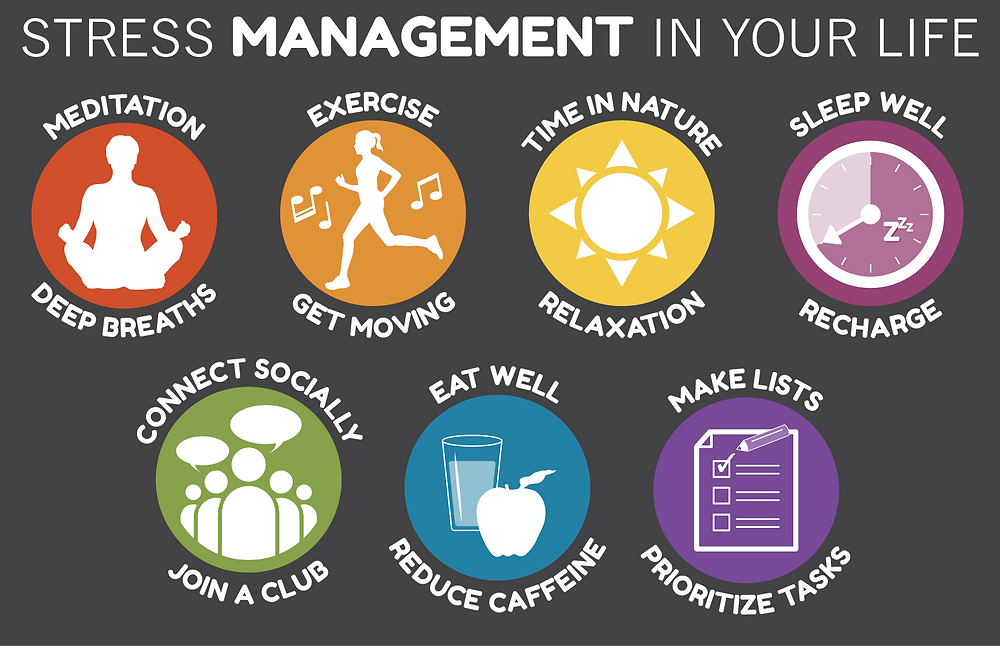April is National Stress Awareness Month and the past two years have certainly exposed people to new levels of stress. There are several definitions of stress, however most people understand it as an abstract concept or idea. Stress effects your body, thoughts, feelings and behavior. Stress is a physical or emotional response to a demand of change. Most of us know the negative effects that being habitually stressed can have on our lives and body’s, but better understanding its causes and purpose can help prevent patterns of harmful stress in your life. You might also be relieved to learn that stress is also a positive and necessary thing in your life.
As seasons change, it is normal to experience stress. While many people are feeling positive changes that warmer weather and longer days are bringing, that is not the case for everyone. There are several reasons people actually become more stressed in the Spring and research shows depression and anxiety peak in March and April. More day light interrupting your sleep cycle, managing seasonal allergies, graduations, weddings, or exhaustion from the long winter catching up to you are all possibilities. For people who prefer staying in, the pressure to be social can bring waves of anxiety. I often tell myself I need make the most of every nice day we are gifted, because you never know when a late April or early May Minnesota snow storm might come. When we see other people participating in exciting activities outside, it is easy to get down on ourselves and wonder why we aren’t doing the same.
Stress is normally put in a negative light, but stress can also be positive. This is called Eustress, a type of stress we feel when we are excited. Examples of positive stress include going on a first date, riding a roller coaster or hoping to get promoted at your job. Stress about that job interview or big game you having coming up will push you to prepare thoroughly. When we are presented with a challenge, stress can help us rise up to the challenge.
Stress can also protect us in various situations that are potentially dangerous and cause us to act in a way to keep ourselves safe. When we become stressed, our nervous system quickly releases the hormones of adrenalin and cortisol preparing us to fight the perceived threat. This increased blood pressure, rapid heart rate, digestion system changes and muscles tension indicate that we are in what’s known at the “fight or flight” response. The text book example showing the power of the fight or flight response is a mother lifting a car off of her child in an accident. Stress can give us unbelievable amounts of strength, but it can also give us incredible mental strength. On a much different scale, when I was struggling to finish my final project in grad school, the pressure of knowing my grade depending on it and it being due in only two days, due to my procrastination, was just enough to give me motivation. We stress about things that are important to us.
Stress can also indicate that it is time for us to take a break. Long term activation of your body’s stress response is known as chronic stress. If not taken care of, this can affect all parts of your body and mind, causing high blood pressure, heart disease, diabetes, headaches, digestion problems, anxiety and depression just to name a few. It is important to listen to our mind and body when we feel stressed. Ask yourself, where are you able to take breaks in your life? Maybe it’s a ten minute walk on your lunch break or taking a full week off. If you are unable to take the breaks you need, consider asking others for help. There is no shame in receiving help from others and you might be surprised how willing people are to help you.
While the spring can come with new sources of stress, it also bring new opportunities to relieve stress that research has proven effective. My favorite way to unwind and take a break from my routine is walking outdoors. Walking and other moderate exercise releases chemicals in our brain called endorphins that improve your mood and aid relaxation. Research studies have shown walking outside as a form of exercise reduces the stress hormone, cortisol. A controlled study to measure the benefits of walking outside showed lower cortisol levels in students who walked in nature compared to students who walked at the gym or students who viewed nature without walking (Olafsdottir, G., Cloke, 2020).
You also might want to try bringing a friend along to on your walk. Talking with others has also been shown to lower cortisol levels. Sharing our emotional experiences with others helps us identify and understand them better. As a social worker and therapist, I notice the relief in peoples bodies daily when they are able to verbalize their stressors and feel heard. Often this helps people gain acceptance and find solutions.
Finding a break from stress is tough, but it is important to consider what you can and cannot control. We cannot control the weather, the world and other people’s actions, but we can control how we approach each day and the choices we make. My hope for Stress Awareness Month, is that people will find what helps them relieve stress, while recognizing when stress has served a good purpose.
Written By:
Jenny Birkholz, MSW, LGSW, LADC
Individual and Family Therapist
Lakes Center for Youth and Families


Recent Comments